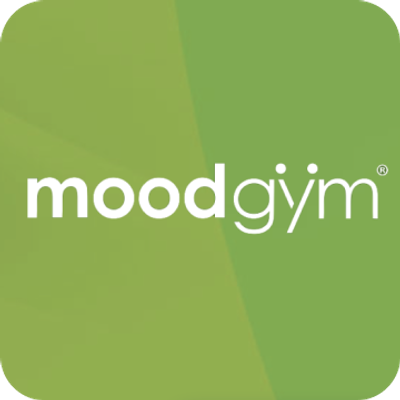How to get the most of our therapy
Therapy can help you achieve your goals and feel better about yourself, but it's good to remember that turning up to your session is only half the equation. By using this time effectively, you can set yourself up to benefit as much as possible from the time with your therapist.
Preparing for therapy sessions is an important part of your wellbeing journey. Just a bit of preparation can streamline your sessions, ensuring your time and money are well spent. It can also make you feel more confident and mentally ready to attend.
Here are a couple of things to try before your therapy session:
- Take note of things to discuss
Sometimes when you go to therapy, you sit down with good intentions, ready to get to work - but completely forget what you wanted to talk about. It might not be easy opening up to someone you don’t know, so the pressure can chase away all your thoughts and make it hard to think of things on the spot.
This is a completely normal thing to happen. To help, it can be great to get into a pattern of taking notes down when relevant things happen between sessions that you want to bring up with your therapist. You can try writing a journal, taking notes in a notebook or using note-taking or journaling apps on your phone.
It's not about writing an essay on how you're feeling, as this can cause you to spend too long dwelling on the thing. It's more of a quick note that can help jog your memory later on. For example, "Tell the therapist about the awkward conversation I had with my boss".
Here are a few things you could note down before your next session:
- How you felt on certain days (eg. felt low on Monday)
- Moments or events that affected you (eg. felt anxious/great at dinner with friends)
- Thoughts (eg. worried about what people are thinking of me at work)
- Behaviours (eg. avoided seeing friends on the weekend).
- Set your intention
Setting an intention for what you want to achieve and talk about in your next session can help focus your time in therapy.
If you've been taking notes leading up to your session, you might have a handful of things you'd like to discuss. But because of time limitations, sometimes you won't be able to cover everything.
If you review your notes beforehand, you can prioritise what you want to talk about. What's the most helpful thing for you to talk about with your therapist this time?
It can also be really useful to ask yourself, "What does a successful therapy session look like for me this week?". Is it important that you leave the session with tools and strategies to put into practice in your day-to-day life? Or do you just want to vent and have your therapist listen to you?
Making a plan and communicating it with your therapist at the beginning of your session can help them structure the session for you and ensure that you're working towards something useful. This way, you'll be able to get the most value out of your appointment.
“Once you start therapy, the most important thing is to be willing to do the work that will help you. ”
After your therapy session
Finishing a therapy session can feel different every time. Sometimes you might leave with a sense of accomplishment and feel really great. Other times you might leave feeling drained, exhausted or upset.
Therapy can be hard work, but really valuable work. So after the session, it’s important to take the time to look after yourself, reflect and capture what you’ve learned while it’s fresh in your mind.
It might not be possible or necessary for everyone, but it can be really helpful to set aside some time after your session simply to look after yourself.
This might mean that you don't rush back to work or head straight to your next errand. Instead, take a moment to acknowledge the work you've just done and practice self-care. Maybe you call someone up for a chat, go for a walk, or work out. Whatever feels good and right for you.
It’s a strange experience, but after you leave your session, and increasingly in the days following, you can start to forget what happened in your appointment. Breakthroughs and insights that made so much sense in the moment can start to fade away.
Write down the top things that came out of your session, how you felt, the things you liked about the session and the things you didn't. If you forgot to talk about something, take note of this now so that you remember to bring it up next time.
Keeping track of your sessions will allow you to look back on your learnings and start putting them into practice. It's also a great way to track your progress and see the value you're gaining through therapy.
In between therapy sessions
The time spent outside your sessions is the biggest opportunity to make progress, practise what you've learnt, overcome obstacles and improve your mental health.
Think of therapy as a lesson, like when you're learning to play a musical instrument or speak a new language. You pay for an hour with an instructor to teach you the basics, then you're expected to go home and keep practising.
If you don't practise in between your lessons, it can be harder to learn this new skill. With therapy, it's much the same. Your therapist will generally teach you something new, and then it's up to you to try it out and see how it works in the real world.
Homework is most often used in Cognitive Behaviour Therapy (CBT), but it isn't uncommon in other types of therapy.
The thought of homework might bring up memories from school and make you feel anxious. But unlike school, there aren't any grades, and it isn't a test. Homework is designed to help you apply the techniques and strategies your therapist advised to your day-to-day life.
Homework can take a variety of different forms, from trying a breathing exercise to noting down moments when you feel a certain way. Your homework might look like:
- Journalling
- Making lifestyle changes such as changing dietary choice or increasing physical activity
- Writing down how you felt in specific situations
- Using relaxation techniques
- Watching a video recommended by your therapist
- Trying meditation
- Thinking about your goals and writing them down
- Practising certain skills, such as social skills
If you come away from a therapy session with homework or with a new skill to try, it can be really valuable to put together a plan for how you’re going to approach this, or asking your therapist to help you plan how to use it in your daily life.
One way is to create a checklist and break down the steps you want to take before your next session. For example, you could think about:
- The task (eg. understand the physical symptoms of anxiety)
- Why it's important (eg. to help me identify the different ways that anxiety shows up in my body)
- The ideal timeframe (eg. by the end of the week)
- How you know you've achieved it (eg. I'll have a better understanding of how I feel when I'm anxious
Outside of your assigned homework, it can be really beneficial to capture moments when you encounter an obstacle. Describe what happened, what you felt in the moment, what thoughts and feelings you had and how you reacted to those thoughts and feelings.
Keeping track of these things will help you identify triggers or patterns in your life. It will also allow you to share your experience with your therapist, so they can help you find ways to deal with that obstacle next time.
It might be helpful to capture obstacles, but it's even more important to celebrate the moments when you handle something better than you would have expected. Maybe you managed your mood differently to how you would have previously. Or applied a technique from therapy that made a difference at work, in your personal life or at home.
The time you spend with your therapist is only the tip of the iceberg when it comes to opportunities for progress. Taking that little bit of time to reflect after each session makes therapy as helpful as it can be - not just in a session but also in the rest of your life.







